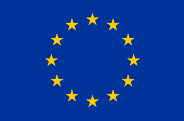
Safe non-food consumer Products in the EU and China
Note that there may be serious legal, financial, and reputational consequences for those businesses that place dangerous products on the European market.
It is, therefore, important for businesses to take proactive action if they become aware of any product safety issues as trying to hide the problem or delay corrective measures can cause significant reputational damage.
EU-wide surveys show that consumer trust can actually increase as a result of a well-managed recall, so it is essential for economic operators to act quickly and transparently instead of waiting for an order from market surveillance authorities.
Reporting any unsafe products
If an economic operator suspects they have placed an unsafe product on the EU market, they have an obligation to immediately notify relevant national market surveillance authorities about the details and the corrective actions they intend to take. This can be done by:
Carry out necessary corrective action(s)
Under the supervision of the market surveillance authorities, the appropriate corrective action(s) needs to be carried out. This can be triggered by the voluntary initiative of the economic operator responsible for placing the product on the market or ordered as a mandatory measure by the authorities.
Both voluntary and mandatory corrective actions can take several forms dependent upon the nature of the hazard, the level of risk identified, and the type of product involved:
Economic operators should duly implement the corrective actions agreed with/mandated by market surveillance authorities and put in place a comprehensive monitoring system to assess their effectiveness.
The European Commission has set up a dedicated tool, the Product Safety Business Alert Gateway.
To report a product on the Gateway, businesses require an EU login authentication and should read these explanatory notes for further details.
You can learn more this subject in the case studies section.

This website was created and maintained with the financial support of the European Union. Its contents are the sole responsibility of SPEAC project and do not necessarily reflect the views of the European Union.